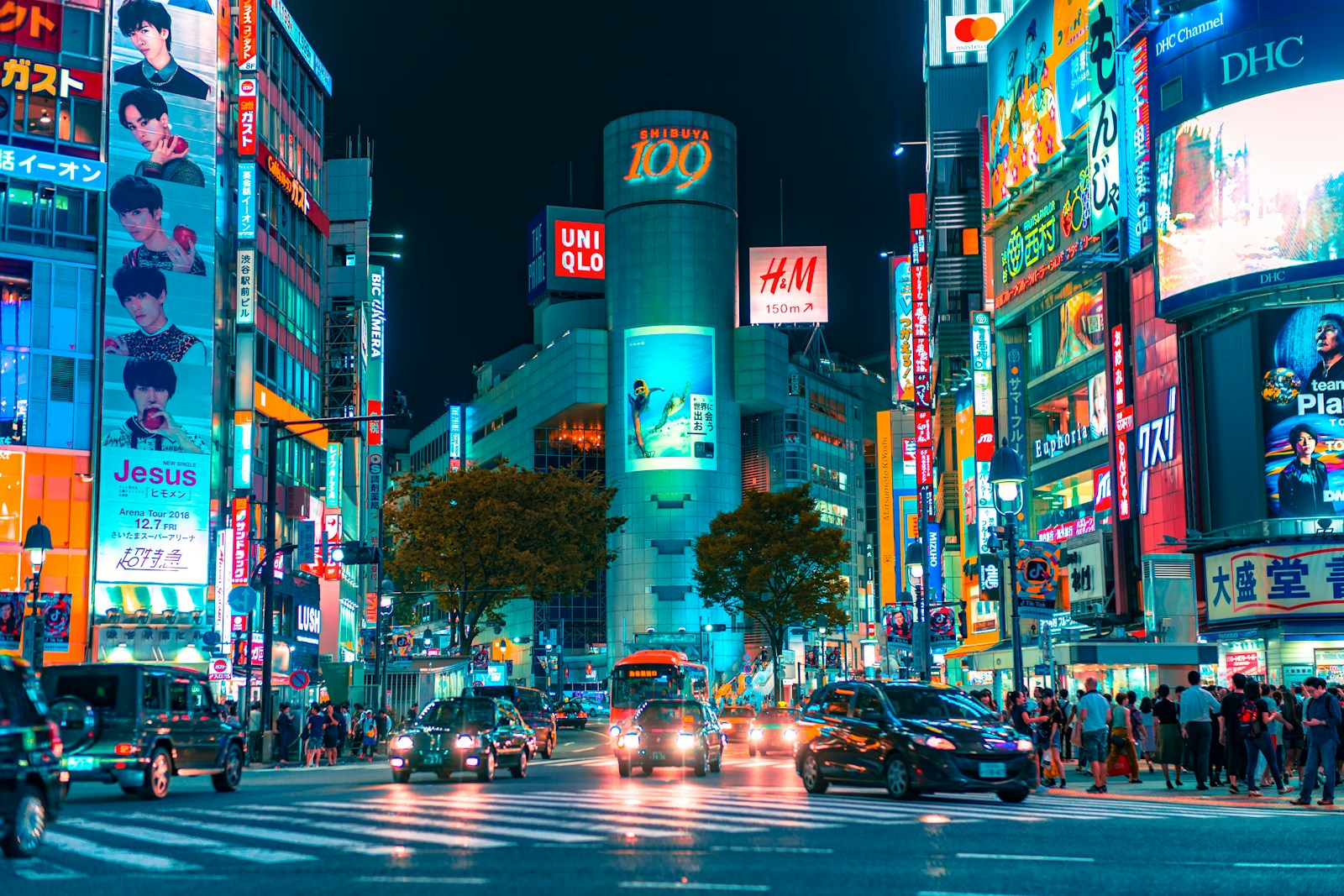Japan is consistently ranked as one of the safest countries in the world. Visitors and locals alike are often amazed by how secure they feel in public spaces, even in large cities like Tokyo and Osaka. You can walk alone at night, leave belongings unattended in cafes, and use public transportation with little fear of theft or violence. But what are the factors that contribute to Japan’s impressive safety record?
This article examines the cultural, social, legal, and institutional reasons why Japan is so safe and how these factors contribute to creating a low-crime society.
1. Cultural Emphasis on Respect and Social Harmony
Japanese culture places a high value on respect for others, social harmony, and the avoidance of conflict. The concept of “wa” (和), meaning harmony, is central to Japanese society and plays a significant role in how people interact with one another. From an early age, Japanese citizens are taught to avoid behavior that might disrupt the peace or cause inconvenience to others, known as “meiwaku” (迷惑). This mindset naturally discourages criminal behavior, which is often viewed not only as illegal but also as deeply dishonorable.
How Cultural Values Influence Behavior:
Japanese people are raised to consider how their actions affect the community. This strong sense of social responsibility discourages behaviors like theft, vandalism, or violence, which could harm the well-being of the group. Maintaining harmonious relationships is a priority, and causing harm or conflict is seen as a serious moral failing.
Additionally, public shaming plays a role in discouraging crime. In Japan’s collectivist culture, where social standing and reputation are highly valued, being caught engaging in criminal behavior could bring significant shame to both the individual and their family.
Key Takeaway:
Cultural norms that emphasize respect, social harmony, and avoiding conflict play a significant role in reducing crime in Japan. The desire to maintain community harmony discourages criminal behavior and promotes a sense of shared responsibility for public safety.
2. Strict Gun Control Laws
Japan has some of the strictest gun control laws in the world, and as a result, gun-related crimes are almost nonexistent. The process to legally own a gun in Japan is highly regulated, requiring extensive background checks, mental health evaluations, and rigorous training. Even after obtaining a gun license, regular inspections and renewals are required, and gun ownership is primarily limited to hunting rifles and airguns.
Impact of Gun Control on Crime Rates:
Because guns are so difficult to obtain, violent crimes involving firearms are extremely rare in Japan. The strict regulation of firearms has contributed to a society where violent confrontations are less likely to escalate into fatal encounters. This lack of access to guns also plays a role in maintaining public safety, as the threat of armed violence is virtually non-existent in day-to-day life.
Key Takeaway:
Japan’s stringent gun control laws have been instrumental in maintaining low levels of violent crime, particularly gun-related incidents. The rarity of firearms in the country contributes significantly to the overall sense of safety.
3. Strong Law Enforcement Presence
Japan has a highly effective and visible law enforcement system, which plays a crucial role in deterring crime. Police officers, known as “koban”, are stationed in small neighborhood police boxes throughout cities, making law enforcement accessible and integrated into local communities. The presence of koban officers in residential areas and public spaces ensures that help is readily available and that minor disturbances are quickly addressed.
How Law Enforcement Works in Japan:
Koban officers are not only responsible for enforcing the law but also for building relationships with local residents. They often perform community-oriented duties such as giving directions, assisting with lost property, and even patrolling neighborhoods on foot or by bicycle. This close-knit relationship between the police and the public fosters trust and creates a sense of security.
In addition to the strong police presence, Japan has a highly efficient legal system that ensures swift punishment for criminal behavior. The legal system’s effectiveness in prosecuting crimes also serves as a deterrent to would-be offenders.
Key Takeaway:
The strong presence of law enforcement, combined with the efficient legal system, ensures that crime is quickly addressed and discouraged in Japan. The visible role of police officers in local communities helps prevent crime and builds trust between law enforcement and the public.
4. Focus on Education and Moral Instruction
In Japan, the emphasis on education extends beyond academics; moral instruction is an important component of the school curriculum. From an early age, children are taught to be responsible, respectful, and considerate members of society. Schools in Japan instill values like honesty, discipline, and respect for others, which contribute to the overall behavior of citizens as they grow older.
How Education Shapes Behavior:
Japanese schools integrate character education and moral lessons into their daily routines. Students are responsible for cleaning their classrooms and schools, which instills a sense of ownership and respect for their environment. They are also taught the importance of following rules, obeying laws, and maintaining social order.
By promoting respect for others and a sense of personal responsibility, the education system helps develop law-abiding citizens who are less likely to engage in criminal activity.
Key Takeaway:
Japan’s education system emphasizes moral instruction and character development from an early age, contributing to a culture of law-abiding citizens and fostering a strong sense of responsibility toward maintaining a safe society.
5. Low Income Inequality and Strong Social Welfare System
Japan has relatively low levels of income inequality compared to many other developed nations, and its strong social welfare system ensures that citizens have access to basic needs like healthcare, education, and housing. When income inequality is low and social services are accessible, there is less economic desperation, which often correlates with lower crime rates.
How Economic Stability Reduces Crime:
Countries with high levels of income inequality often see higher crime rates due to economic strain, social unrest, and limited access to resources. In Japan, the government provides support for individuals facing financial difficulties, reducing the economic pressures that can lead to theft, robbery, or other forms of crime.
Additionally, Japan’s culture promotes the idea that hard work and discipline are the keys to success, rather than engaging in illegal activities. With more equitable access to resources and opportunities, there are fewer motivations to turn to crime as a means of survival.
Key Takeaway:
Japan’s lower levels of income inequality and strong social safety nets help reduce economic pressures that might otherwise lead to crime. Economic stability and access to basic resources contribute to maintaining a safe and orderly society.
6. Public Spaces and Design
The design of Japan’s public spaces also plays a role in its low crime rates. Japanese cities are generally well-lit, and public spaces are designed to promote visibility and discourage criminal activity. Streets are often narrow, with homes and shops in close proximity to one another, allowing for natural surveillance by neighbors and passersby.
How Urban Design Prevents Crime:
Well-lit streets, close-knit neighborhoods, and a high population density mean that there are always people around to witness any potential criminal activity. This “natural surveillance” makes it harder for crimes to go unnoticed and helps deter criminal behavior. Additionally, Japan’s public transportation system is highly organized and monitored, further contributing to a safe environment.
The cleanliness and organization of public spaces also play a psychological role, as a well-maintained environment fosters a sense of pride and respect for the community, reducing the likelihood of vandalism or petty crime.
Key Takeaway:
The design of Japan’s urban areas promotes visibility and natural surveillance, making it difficult for criminal activity to go unnoticed. Clean, well-lit, and organized public spaces contribute to a general sense of safety.
Conclusion
Japan’s reputation as one of the safest countries in the world is the result of a complex interplay of cultural, legal, and social factors. The country’s strong cultural emphasis on respect and social harmony, strict gun control laws, visible law enforcement, and a focus on education and moral development all contribute to creating a society where crime is rare.
In addition, Japan’s low levels of income inequality, strong social welfare system, and well-designed public spaces further enhance the sense of safety that both residents and visitors experience. Together, these factors create an environment where people can live and work without fear, making Japan one of the safest countries to live in and visit.




